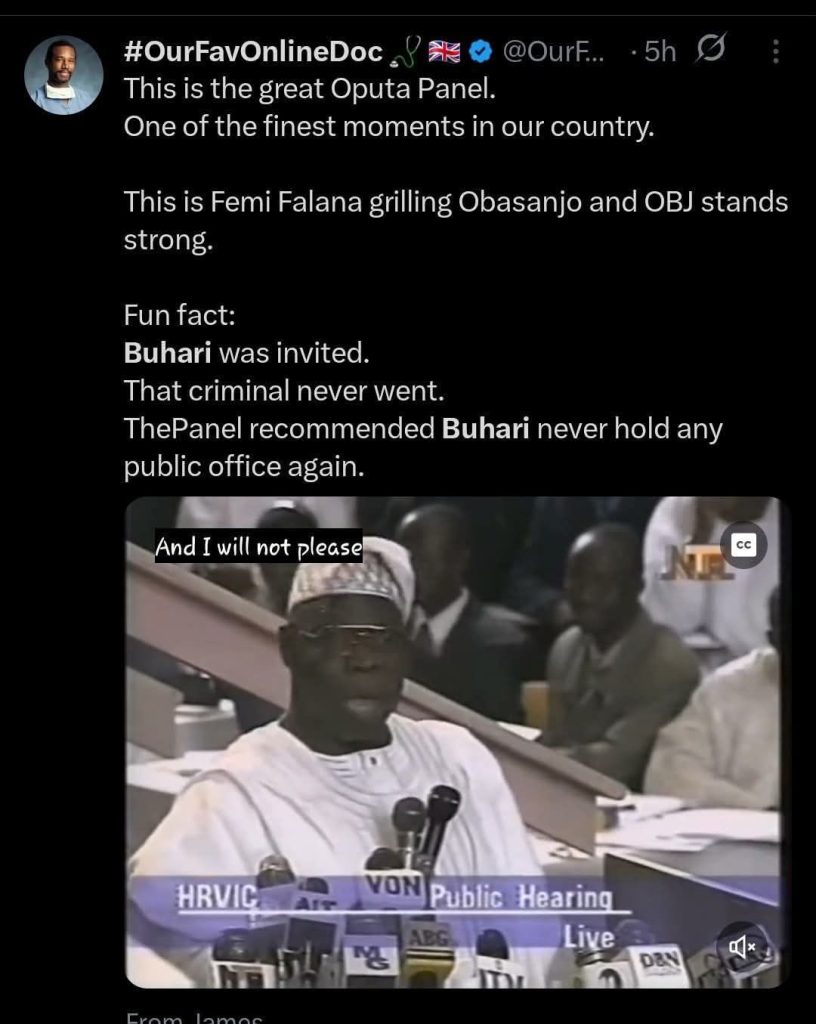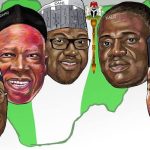— For the Archives of Igbo and Marginalized Nigerian Truths
ABUJA, NIGERIA – July 2025
The death of Muhammadu Buhari has reawakened a divided national memory: one side glorifies him as incorruptible, the other condemns him as an emperor of illusion, armed with myth rather than merit.
His life tells two stories. One, packaged for mass consumption by political strategists. The other, carried in the memory of victims, shattered families, and regions — especially Nigeria’s South and Middle Belt — who bore the brunt of his silence, decisions, and complicity.
This article documents both — and preserves the one many would prefer forgotten.
📖 How to Resurrect a Myth: From Failed Autocrat to “Moral Saviour”
Buhari’s military rule (1983–1985) was harsh, short, and unpopular. Yet, its brevity ironically saved him, allowing future generations to imagine what might have been.
Like Murtala Mohammed, Buhari was mythologized by his absence from long-term consequence — not by achievement.
By 2015, Nigeria was tired. The PDP’s 16-year reign was collapsing under corruption scandals, rising insecurity, and elite impunity. Into that vacuum stepped the All Progressives Congress (APC) — and behind them, the resurrected myth of Buhari.
With heavy support from media handlers, political consultants, and powerful southern collaborators, Buhari was rebranded:
- From ethnic nationalist to national unifier
- From economic novice to anti-corruption czar
- From tribal leader to man of principle
This fabrication carried him into the presidency — not once, but twice.
🧱 Where Myth Collided with Reality
Once in power, the resurrection campaign unraveled:
❌ The Betrayed Promises
- He vowed not to hike fuel prices — but tripled them.
- He decried foreign medical tourism — but spent over 200 days in UK hospitals.
- He promised transparency — but refused to declare assets fully.
- He swore to tackle corruption — but shielded allies like Abba Kyari and Babachir Lawal.
⚖️ Selective Anti-Corruption & Nepotism
- Over 80% of key federal appointments went to his ethnic kin.
- Recruitments into CBN, DSS, and military were marred by regional bias.
- Many southern regions, particularly Ndi Igbo, were politically isolated and economically sidelined.
🕯️ Mysticism Over Merit
The presidency once claimed Buhari’s office was “spiritually contaminated,” requiring 81 days of spiritual cleansing after his 2017 medical trip. This mysticism became symbolic of a leadership divorced from rational governance, hiding failure behind folklore.
🩸 Legacy in the Blood of Forgotten Communities
For many, especially Ndi Igbo, Buhari’s legacy cannot be separated from:
- Operation Python Dance, which brutalized Eastern Nigeria under the guise of security.
- Nimbo Massacre (Enugu, 2016): 40 Igbo farmers slaughtered — no justice.
- The Lekki Toll Gate Massacre (2020), under his silence and military command.
- The mass murder of Shia Muslims in Zaria (2015) — over 350 dead.
- Benue, Taraba, Plateau, Southern Kaduna — towns erased, survivors ignored.
These are not footnotes. They are the true chapters of his presidency — and they must be archived.
📌 Why Ndi Igbo Must Remember and Document
Buhari’s story is not just about one man, but about what happens when a nation forgets.
The South-East, always politically vulnerable, must take this lesson seriously:
Documentation is defense. Memory is resistance. Silence is surrender.
We must not let myth triumph over record again:
- Let future generations know the truth of Buhari’s governance.
- Let the names of the ignored dead in Nimbo, Zaria, Lekki, and Agatu be written and spoken.
- Let Ndi Igbo’s marginalization under his regime be taught, archived, and used to shape advocacy.
⚖️ Conclusion: Who Truly Resurrected Buhari — and Why It Must Never Happen Again
Buhari’s resurrection was not divine — it was strategic. A coalition of desperate politicians, media spin doctors, and cynical power brokers fed a starving nation a myth in place of a solution.
His greatest legacy may not be any infrastructure or anti-corruption claim — it is the national disillusionment that followed, and the evidence that symbols alone cannot lead.
Let this article be more than commentary. Let it be part of the living archive of how myth overtook memory, and how truth must fight harder to survive.
Archival Note for Ndi Igbo and Other Marginalized Groups:
Save this article. Translate it. Print it. Quote it in books. Use it in documentaries. Let it live in public space. Let it outlive political handlers and temporary praise.
Because if we forget this, they will repeat it.







